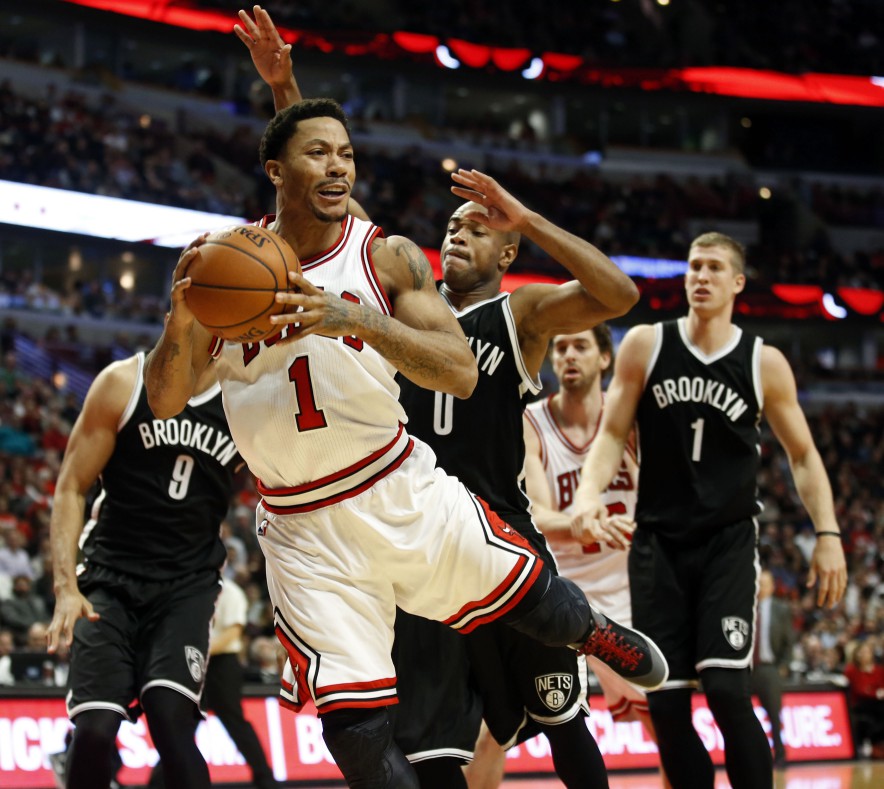Youngest-ever NBA MVP Derrick Rose has retired, amidst an outpouring of memories on social media.
While everyone is busy sharing their own Rose moments, the rule he inspired is shaping the contracts of the league’s next generation of stars.
Rose was the league MVP during his time in Chicago – denying LeBron James five-in-a-row
Rose was the youngest MVP winner in history but was hampered by significant injuriesGetty
Following his retirement from the NBA on Thursday Derrick Rose may have cemented his spot as the league’s all time “what if?” player.
For all the accolades the former No. 1 pick earned over the course of his 16-year career — Rookie of the Year, the youngest NBA MVP in league history, three All-Star selections — it’s the bargaining rule he inspired that continues to make a big impact on today’s NBA.
Known as “The Derrick Rose Rule,” the provision was worked into the collective bargaining agreement (CBA) reached between the NBA and the Players Association in 2011.
It states that, if a player on his rookie contract earns two All-NBA team selections, is selected as an All-Star starter twice, or wins the NBA MVP, he becomes eligible for a max contract, worth 30% of a team’s salary cap.
The rule bears his name because, when he was named MVP in 2011, Rose was still on his first professional deal with the Chicago Bulls.
He went on to ink a five-year, $94.8 million extension with the team later that year.
However at the time it was ratified into the new CBA, the young star was surprised to learn it was named in his honor.
“It’s unbelievable,” he told ESPN.
“But the rule, I guess, it fits me for what I’ve achieved at a young age, and hopefully there will be a couple more people like me.”
And there have been.
While Rose is still the youngest player to ever be named NBA MVP, an award he won sandwiched between back-to-back awards by LeBron James.
The King – then in his first spell with the Cleveland Cavaliers – claimed the regular season MVP award for the first time in 2008-09, and followed up in 2009-10.
Denying James a hat-trick was Rose with his brilliant 2010-11 season, which came before LeBron added his third and fourth MVP awards, this time with the Miami Heat in 2011-12 and 2012-13.
Rose’s achievements mean the current crop of the league’s brightest young stars are set to reap the benefits of his bargaining rule.
Anthony Edwards’ next contract could be worth nearly half a billion dollars
The Minnesota Timberwolves’ Anthony Edwards and the Indiana Pacers’ Tyrese Haliburton both made their first All-NBA teams this past season.
As a result, their recently signed contract extensions included a reported $40 million bump for meeting Rose Rule requirements, bringing each deal to a league-max $260 million.
Meanwhile, the Dallas Mavericks’ Luka Doncic, who has made the All-NBA team for five straight seasons, and the Oklahoma City Thunder’s Shai Gilgeous-Alexander, who has been named to two All-NBA teams will also both benefit from the Rose Rule.
Both are expected to sign massive ‘super-max’ contracts that could reach as high as $346 million.



